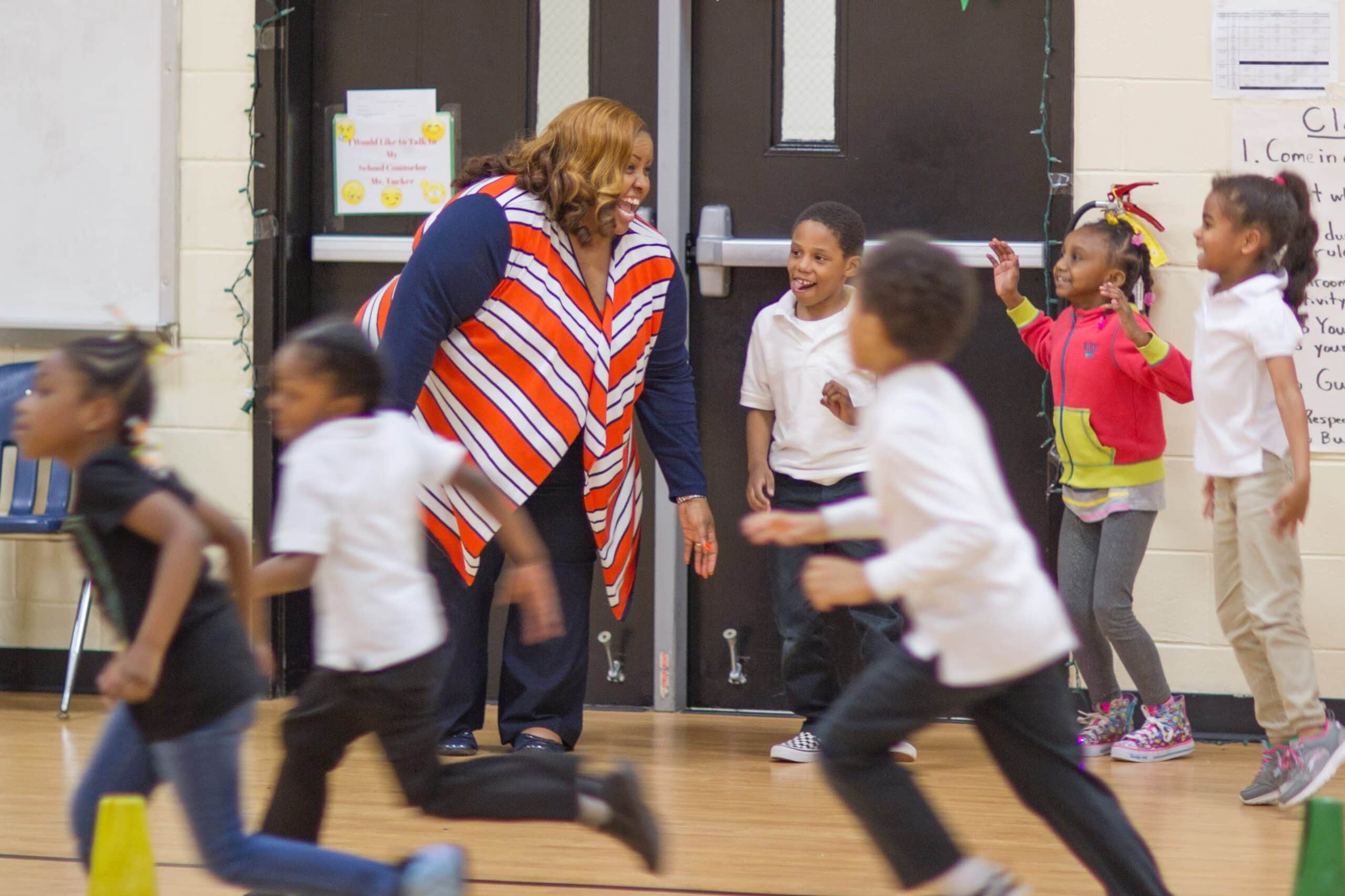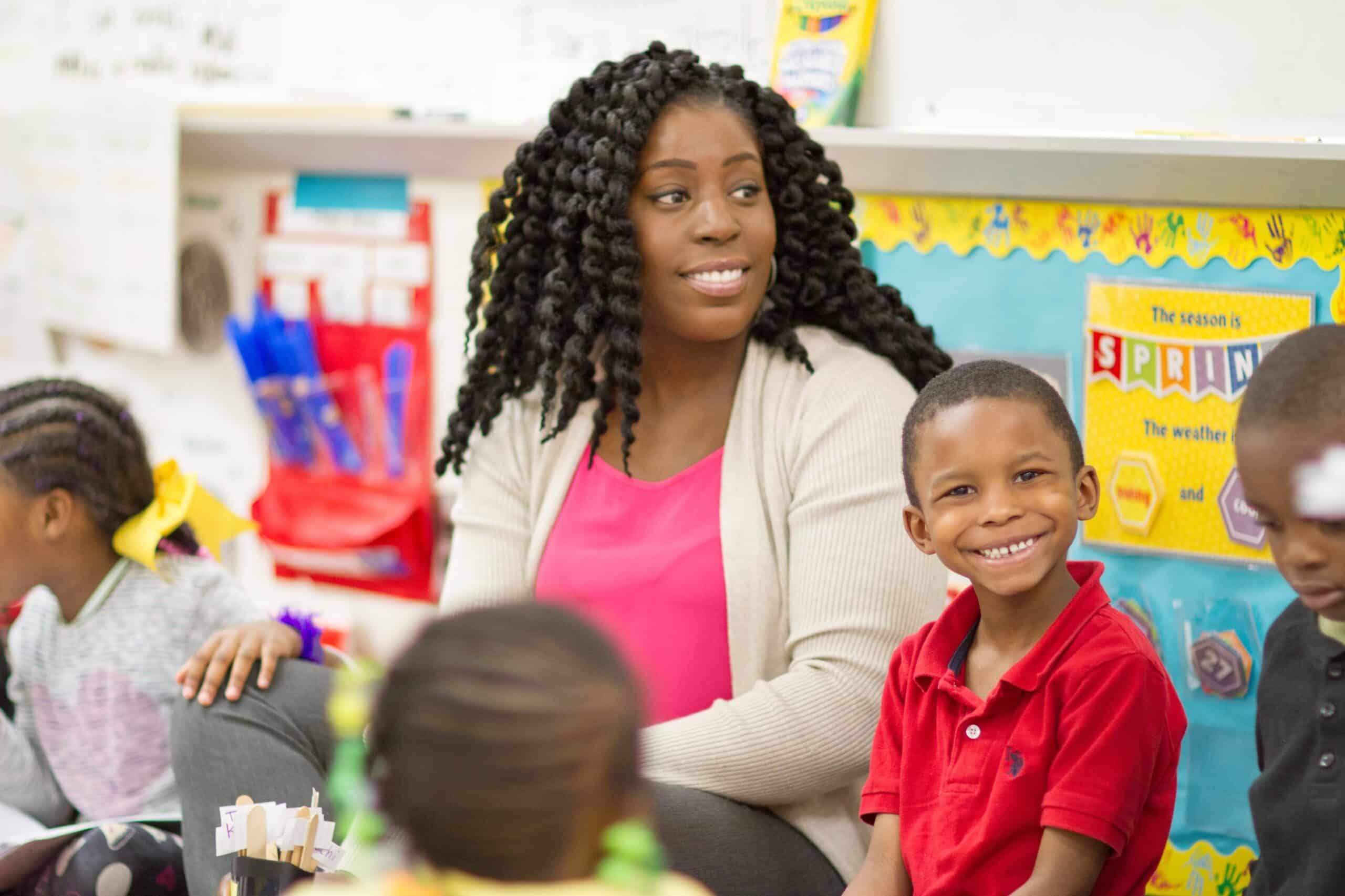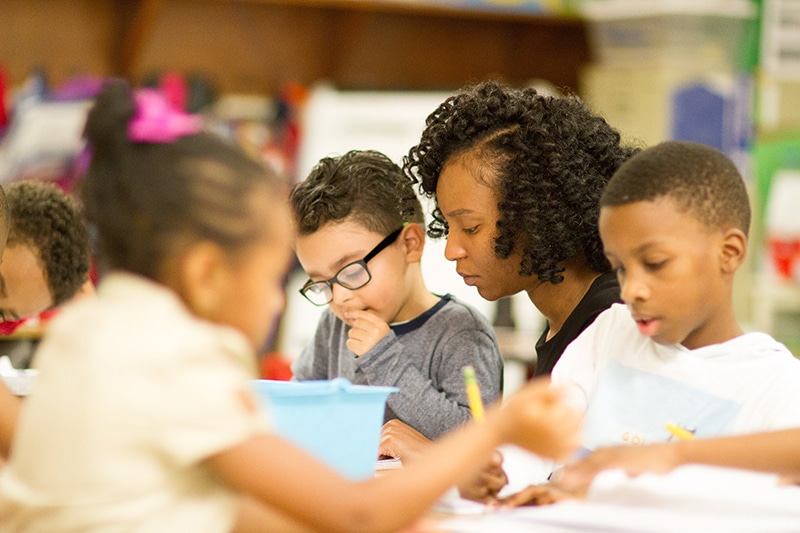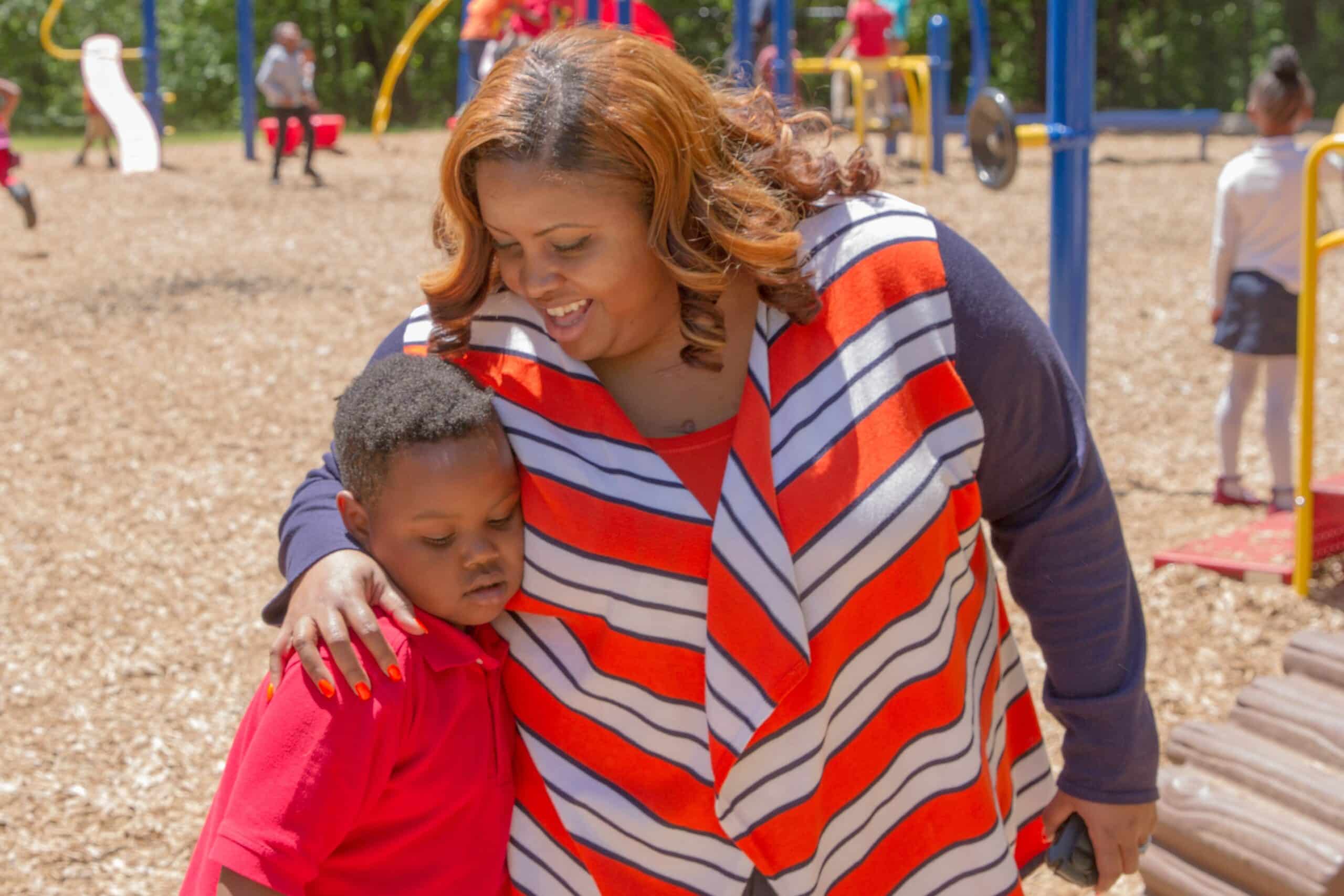Culture Change—A Sunny Forecast for Georgia Schools

By Diana St. Lifer
There’s a certain way teachers and staff walk through the halls of Brookview Elementary School. There’s also a protocol for how families are greeted and an expectation in the way teachers speak with parents about how their children are doing.
“Culture matters,” said Principal Jovita Wallace. “And school culture has to be a vital part of what we develop and work on for school climate to improve. There are systems with positive framing in just about everything we do. And it makes a difference.”
Brookview participated in the initiative to integrate a deeper understanding of early childhood behavior and development into classroom practices though a schoolwide Positive Behavior Interventions and Support (PBIS) framework.
The climate at the Fulton County school was uninviting, particularly to parents, when Wallace took over as principal in 2016.
“I had an opportunity to do a focus group with some parents, and I asked them to be honest with me about the school,” Wallace explained. “I said, ‘Tell me the good, the bad, and the ugly about Brookview—and what you would like to see changed.’ ”

Wallace said the unwelcoming environment was a primary concern, and that feeling trickled down to the nearly 490 students. This translated into high instances of misconduct and out-of-school suspensions, which took children out of the classroom and away from valuable learning time.
“If the parents don’t want to engage and be part of the learning environment because of their experiences, then how can I expect the students to have a positive relationship with the school or the teachers?” said Wallace.
Implementing PBIS at Brookview has helped decrease suspensions by 50 percent, increase parent involvement, and boost the school’s College and Career Ready Performance Index (CCRPI) by double digits. Research also shows that a positive climate increases teacher retention and is a critical element in how safe students feel at school.
According to Wallace, everyone at Brookview—even the bus drivers—participate in PBIS. The goal is to implement a PBIS system district-wide, and a PBIS committee meets regularly to discuss objectives, training, and implementing systems that are consistent with the school’s mission to help students become critical thinkers, problem solvers, and productive citizens in a globally competitive society.
“We know that preventative practices can improve school climate, so we focus on social, emotional, and behavioral developmental strategies,” Wallace said. “Brookview is changing, and I’m proud of it. Think about how much change we will see if it’s consistent school to school.”

That change is apparent in academic outcomes, according to Garry McGiboney, deputy superintendent for the Office of School Safety at the Georgia Department of Education. “We wanted school climate to become an expectation,” he said. “So we began working with legislators to put school climate into state law.”
Schools that have a climate rating of 5 scored 26 percentage points higher on the CCRPI than schools with a rating of 1—and students reading at third grade-level proficiency or above scored 34 percentage points higher in schools with the highest climate rating.
Data-driven decisions guide specific strategies for PBIS at Brookview, including those related to behavior. For example, a school-wide information system is used to track conduct referrals, showing how often they are received in a specific grade level and which problematic behaviors are happening most frequently in the building.

“Behavior was a huge issue,” said Wallace. “Instead of working with the kids who had learned some negative behaviors, they were suspended—and suspension is not a solution to any issue.”
PBIS also is helping to decrease transiency at Brookview. “Our families are constantly displaced whenever there is a rent increase,” said Wallace. “In the past, families didn’t think twice about pulling their children out of school if they had to move. Now, despite housing challenges they may face, parents are trying to figure out ways to keep their children in the school. It’s a great problem to have when our families want to stay.”
The data in Georgia, which is consistent with data in other parts of the nation and the world, also show that a positive school climate increases teacher retention. “Research shows that the most compelling element of a successful business is workplace climate, and schools are no different,” said McGiboney.
According to McGiboney, Brookview will be a model for establishing PBIS in other elementary school across the state, because it has successfully placed the accountability for changing the school climate in the hands of the adults, establishing a positive climate in the lower grades—and involving parents in the process.
“Children don’t control the climate of the school; the adults do, said McGiboney. “That’s where the change begins. When school climate improves, the ripple effect extends beyond the classroom. Parents become more involved in school activities and, over time, the community’s attitude improves as well. We’re trying to keep things moving forward, and school climate and PBIS are just the beginning.”
